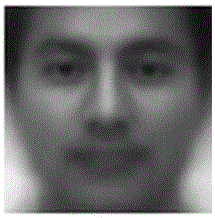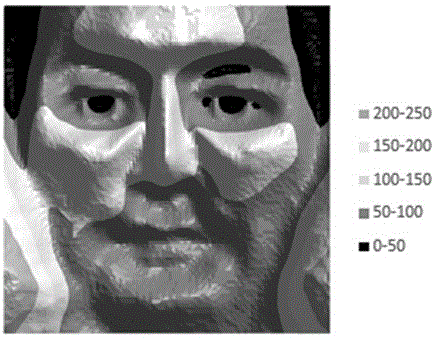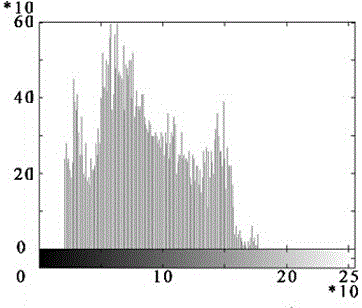Partitioning human face recognition method based on weighted intensity PCNN model
A face recognition and block technology, applied in character and pattern recognition, instruments, computing, etc., can solve the problems of neglecting faces and insufficient refinement of image feature description.
- Summary
- Abstract
- Description
- Claims
- Application Information
AI Technical Summary
Problems solved by technology
Method used
Image
Examples
Embodiment Construction
[0090] The block face recognition method based on the weighted strength PCNN model is realized by the following steps:
[0091] (1) Training stage
[0092] Construct or select an existing face library containing A person, B face images for each person, and a total of A*B face images; take the first N faces of each person in the face library, N≤B / 2, The face image is used as the training image, and each training image is horizontally divided into blocks according to the eyes, nose and mouth, and divided into upper, middle and lower block diagrams corresponding to the eyes, nose and mouth respectively. The three block images of each face image are input into the weighted intensity PCNN model, and each block will get a weighted intensity matrix, so that A*N*3 weighted intensity matrices will be obtained, which correspond to each person's Each block of the training images, and then calculate the average value of the N weighted intensity matrices corresponding to the upper, middle...
PUM
 Login to View More
Login to View More Abstract
Description
Claims
Application Information
 Login to View More
Login to View More - R&D
- Intellectual Property
- Life Sciences
- Materials
- Tech Scout
- Unparalleled Data Quality
- Higher Quality Content
- 60% Fewer Hallucinations
Browse by: Latest US Patents, China's latest patents, Technical Efficacy Thesaurus, Application Domain, Technology Topic, Popular Technical Reports.
© 2025 PatSnap. All rights reserved.Legal|Privacy policy|Modern Slavery Act Transparency Statement|Sitemap|About US| Contact US: help@patsnap.com



